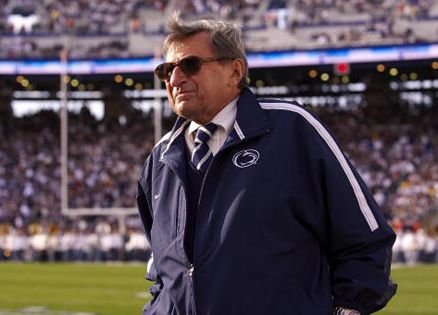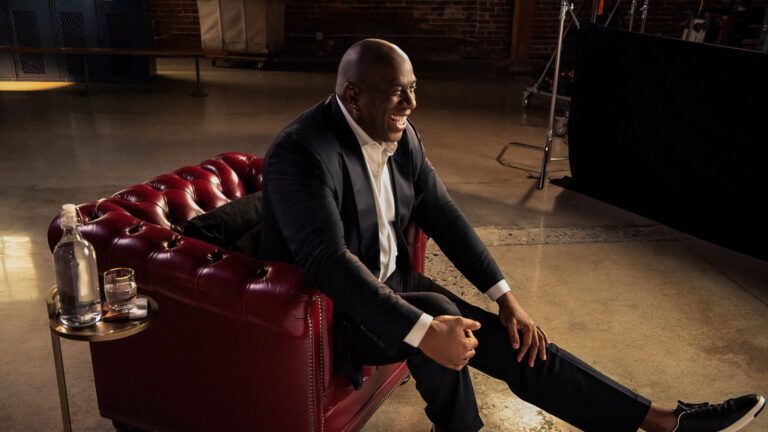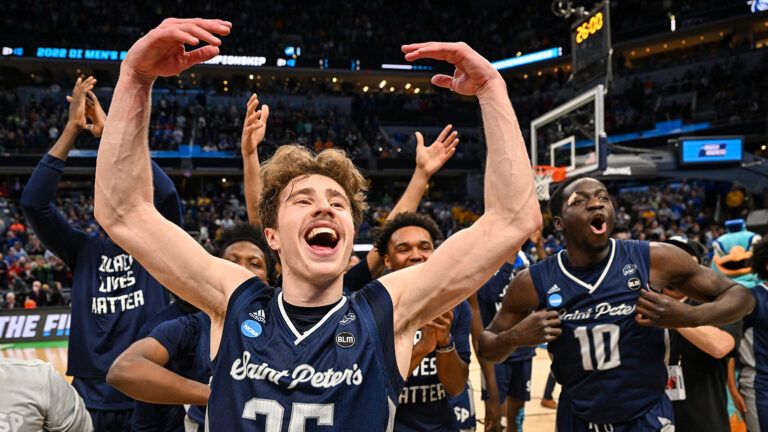I chose Penn State for its strong journalism program and award-winning daily student newspaper. And for something else I loved—football. A perennial national championship contender led by a legendary coach, Joe Paterno, no less.
I’m the granddaughter of a high school football coach, so I learned the game at an early age. Fall always meant watching our Bucks play under the big lights of the high school stadium in Dunmore, Pennsylvania. Hook and ladder. Flea flicker. Reverse. I tried to predict the plays before they were called. And I couldn’t wait to do the same rooting for the Nittany Lions in Beaver Stadium.
That would be the extent of my connection to Penn State football, I figured. After all I wasn’t on the team. I was one of 37,000 students on campus. I wouldn’t get to know Joe Paterno personally. Yet it didn’t take long for me to find out there was plenty I could learn from Coach Paterno, lessons that I still carry with me years after graduation.
It all started with the very first home game of my freshman year. Sitting in the student section in Beaver Stadium, I joined in the school cheer: “We are,” to which the rest of the 85,000 fans in the stadium yelled back, “Penn State!” The Blue Band marched on the field playing our fight song, the brassy notes echoing in the crisp fall air. I’ll never forget the explosive roar of the crowd as Coach Paterno sprinted from the tunnel onto the field, leading his Nittany Lions players. Not a stripe or insignia or—most notably—name on a uniform. Just plain navy jerseys and white pants. Boring, some complained. But I recalled Paterno’s explanation: “Amazing things can be accomplished when no one seeks the credit.” And I had to agree. It’s what’s on the inside that counts, I thought.
Paterno took his place on the sidelines, wearing a shirt and tie. He dressed more like a professor than a coach. Strangest of all, his pant legs were rolled up. Story goes that when he first started as head coach in 1966 he came home after games with the bottoms of his pant legs muddied. This frustrated his wife, Sue, who’d just had them dry-cleaned. So Joe had an idea: cuff the pants a couple of inches. Fans and the press took note of his “floods”—which made his white socks even more obvious. Not exactly a fashion statement. But it worked: a simple plan to achieve a goal.
Paterno is known to walk to work—he lives about a mile north of campus. One day during winter break of my sophomore year, my friend Laura and I were headed to the library when a guy walked by us.
“Hello, girls!” he said.
“Who was that?” asked Laura. The thick-lensed glasses, the shock of black hair sticking out from the hood of a navy-blue duffle coat. Coach Paterno, of course. He didn’t need to say a thing to us. But with those two words he made us feel like we counted.
Two years ago I went back to Penn State to meet up with my college friend Carolyn. We had dinner at our old hangout, The Diner. “I know what you want to do now,” she said. “Go see the statue, right?” Joe Paterno had just won game 324, making him the winningest coach in major college football. A seven-foot bronze statue had been erected to mark the achievement.
We trekked across campus, making our way past the Carnegie Building, where we’d worked on The Daily Collegian, then up the elm tree-lined mall to the library, right where I had come face-to-face with Coach Paterno my sophomore year.
“Look at this!” she exclaimed. The sleek addition to Pattee Library had been completed. We walked inside and were greeted by a painting of Joe and Sue Paterno. They had donated $250,000 toward the building of the addition. Carolyn, an English professor, was impressed. “More books! I like football even better now,” she laughed. The Paternos have also funded an interfaith campus spiritual center and endowed scholarships and faculty positions in the College of the Liberal Arts. An outsider might be surprised at an athletic coach funding academic programs. Then again, an outsider might not really know Joe Paterno.
We left Pattee and headed to the stadium. On the east side was an impressive sight: Joe Paterno, caught by the sculptor in mid-run, tie flapping, trousers cuffed. Just like on game day. Behind the statue were 36 bronze plaques showing the team’s schedule and score for each season Paterno had coached so far. But what really stood out were the words describing him: “Educator” was first, then “Coach.” They got that right. Joe Paterno championed academics over sports any day. If a player was doing okay class work, but not what Paterno thought was his best, he wouldn’t play. It is no wonder Coach and Mrs. Paterno wanted to put their legacy on the library and not, say, a new stadium.
My cousin Michael works in the athletic department at Ohio State University. When the Lions play the Buckeyes in Ohio, I make a trip to Columbus to cheer for my team—and to rib Michael. It rained and rained for our matchup in September 2000. Then, in the fourth quarter, a terrifying moment: Nittany cornerback Adam Taliaferro lay on the field motionless after a hard tackle. Trainers and doctors ran out, Paterno at their heels. The crowd grew unnervingly silent. Adam was lifted onto a stretcher and rushed to the hospital. We got news later that he was paralyzed from the neck down.
In the locker room after the game, Paterno led the team in prayer. Doctors feared Adam wouldn’t walk again. Paterno and his Lions didn’t want to believe that. From that game on, the team prayed for Adam, as hard as they practiced for the next opponent on the schedule.
Slowly, the cornerback regained use of his legs and arms. Paterno said he’ll always remember one beautiful September evening almost a year to the day after Adam was injured. That night the team’s prayers were answered: Adam led the team onto the field for the opener against Miami. For Joe Paterno, that was a win that meant more than the final score of any Penn State game.
Coach Paterno still says football is a part of life—not life itself. In his shirt and tie, he still looks like a college professor pacing the sidelines. All the things I learned about him when I first set foot on campus are true today, which should come as no surprise. He has always lived what he believed. It is this quality, so rare in sports, that has made him more than a great—maybe the greatest—college football coach. It’s the reason he never moved to the pros. It has made him what he most wanted to be— a teacher who touches the lives of students.
I wanted to study journalism at Penn State and root for a championship football team. Little did I know how much a part of that championship Coach Paterno would make me feel.





